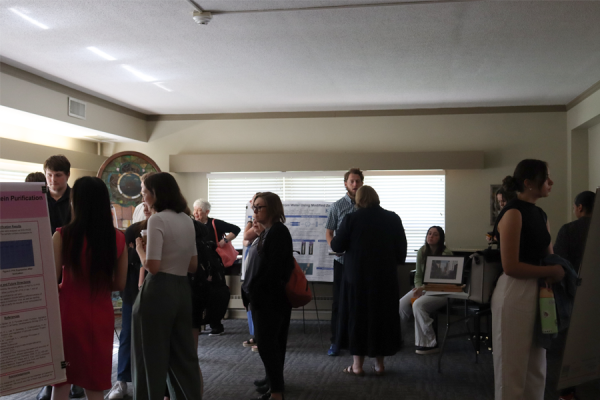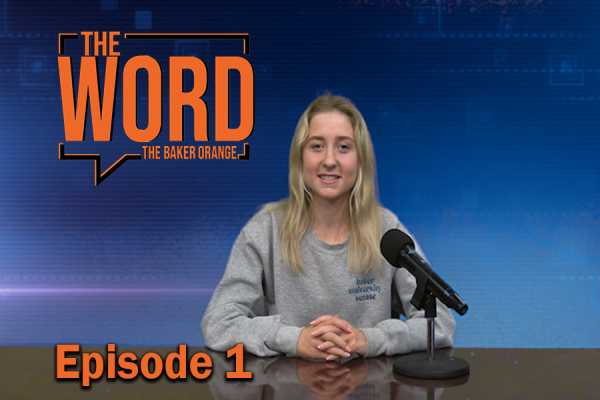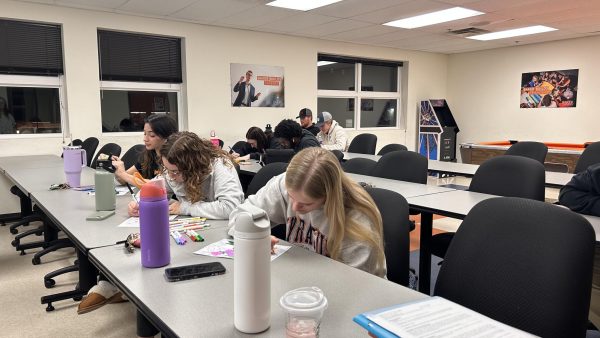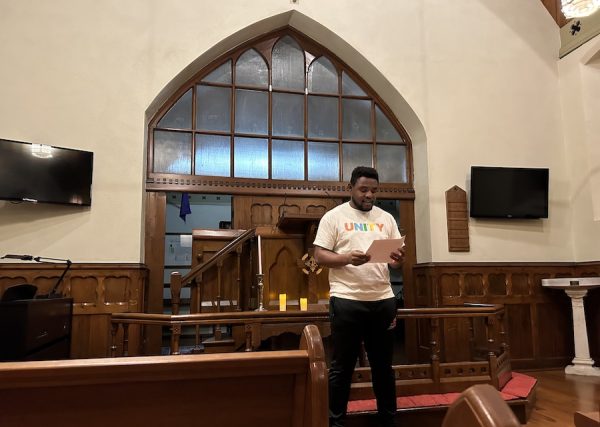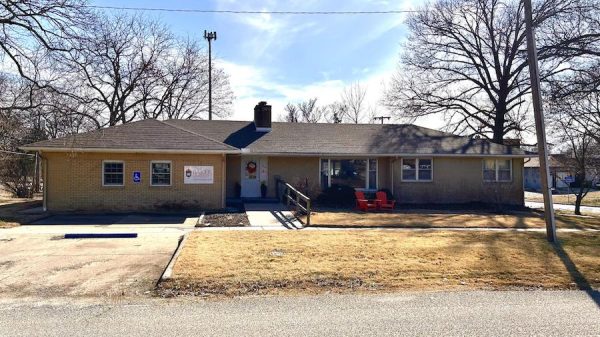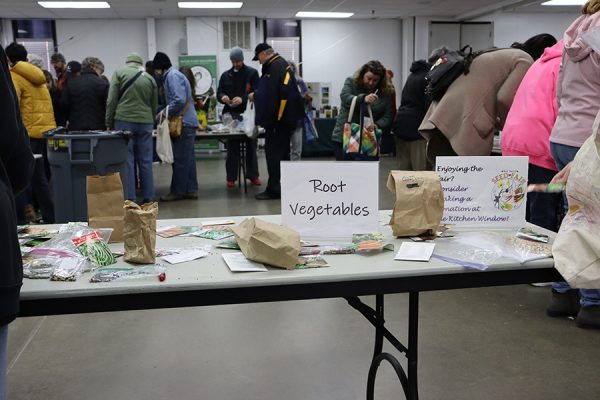New limits placed on local recycling
April 17, 2014
Empty Gatorade bottles, soda cans and cardboard boxes may no longer have a place to go for students who want to recycle locally.
Baker University and the Baldwin City community have revised their recycling programs, and recycling these items won’t come without a cost to many residents.
Baldwin City officials previously offered recycling bins on Ottawa Street, south of the Midway Railway yard. However, because 12th and Haskell Recycling restructured its pricing to increase from $6,000 to $37,000 per year, the city is now eliminating these services. Residents who wish to continue recycling can opt for curbside pick up for $4.50 a month.
After May 1, the roll-off bins will be removed. Scrap metal can still be brought to the current location, and the city will partner with Ripple Glass in Kansas City, Mo., to have a roll-off bin for glass located at the Baldwin City Market, 112 8th St.
“The goal was to decrease our cost to not pass on cost to consumers, but also to retain the same exact level of service,” City Administrator Chris Lowe said.
Curbside recycling pickup became available in Baldwin City in June 2013, but less than 20 percent of residents opted in for the service. For Baker students who wish to recycle, some services are still available, but paper and cardboard are the only two materials that can be recycled on campus.
Roger Boyd, director of natural areas and professor emeritus of biology, began the recycling program at Baker more than 25 years ago with Earth We Are, a group composed of students interested in recycling, and other environmental issues. Each week, a few students would gather recyclable materials on campus and load them into Boyd’s van to drop off in Kansas City. Throughout the years, the method of gathering and disposing recyclables varied, and when Boyd retired in 2005, the group began to wane.
“The momentum of doing that is just not there,” Boyd said. “There wasn’t another faculty sponsor. It was a really small group, and so it always took somebody to initiate, ‘well, let’s get together and decide what we’re doing’ and so on. And unfortunately, I was the guy that did that every year.”
After Boyd retired, Tanya Sieber, former director of dining services, took over the recycling program. After her departure, Kathy Wilson, academic success coordinator, took over and has been the coordinator for two years. The current recycling program relies on five work-study students to complete weekly routes.
The students who participate in the recycling program pick up recyclable materials weekly, but also works with departments if they have special needs or requests. For example, the athletic department may receive a shipment and have several cardboard boxes to get rid of.
“Our recycling program is not only regularly effective for the university, but I also think that we work well with departments and special needs as much as we can,” Wilson said.
Roll-off bins used to be located in the alley between the NLC and the Horn and Markham apartments, but because the sorting process was labor intensive for the work-study students, they were removed. Deffenbaugh Industries of Kansas City will continue to provide the bins and pickup for paper only, as it could no longer pick up plastic and cardboard for free.
The bins behind Pulliam Hall, between Seventh and Eight streets, will remain but can only be used to recycle paper, as well.
Recycling bins behind Irwin Hall have been eliminated.
Once Ottawa Sanitation offered curbside recycling, Baker was able to negotiate in order to provide a large bin for cardboard behind Harter Union, but that bin does not have public access. Another small bin in the maintenance department is for the plastic material that the recycling work-study students pick up on their routes.
Many campus buildings still have small trash bins for recyclable materials.
“The only thing that has diminished is some of the plastic and probably having better access for the students, like for the apartments and the (New) Living Center and Irwin,” Boyd said. “Unfortunately, we can’t provide that anymore.”
The changes in recycling within the Baker and Baldwin City community may arouse different responses from students and residents, but their recycling efforts don’t have to stop.
“From my perspective in being associated with recycling for the last two years, I think in general, people are interested in recycling,” Wilson said. “I think that as consumers, we have been educated outside of our jobs and outside of the university as to the importance of going green, the importance that plays onto our environment and then how we personally want to invest in that.”




